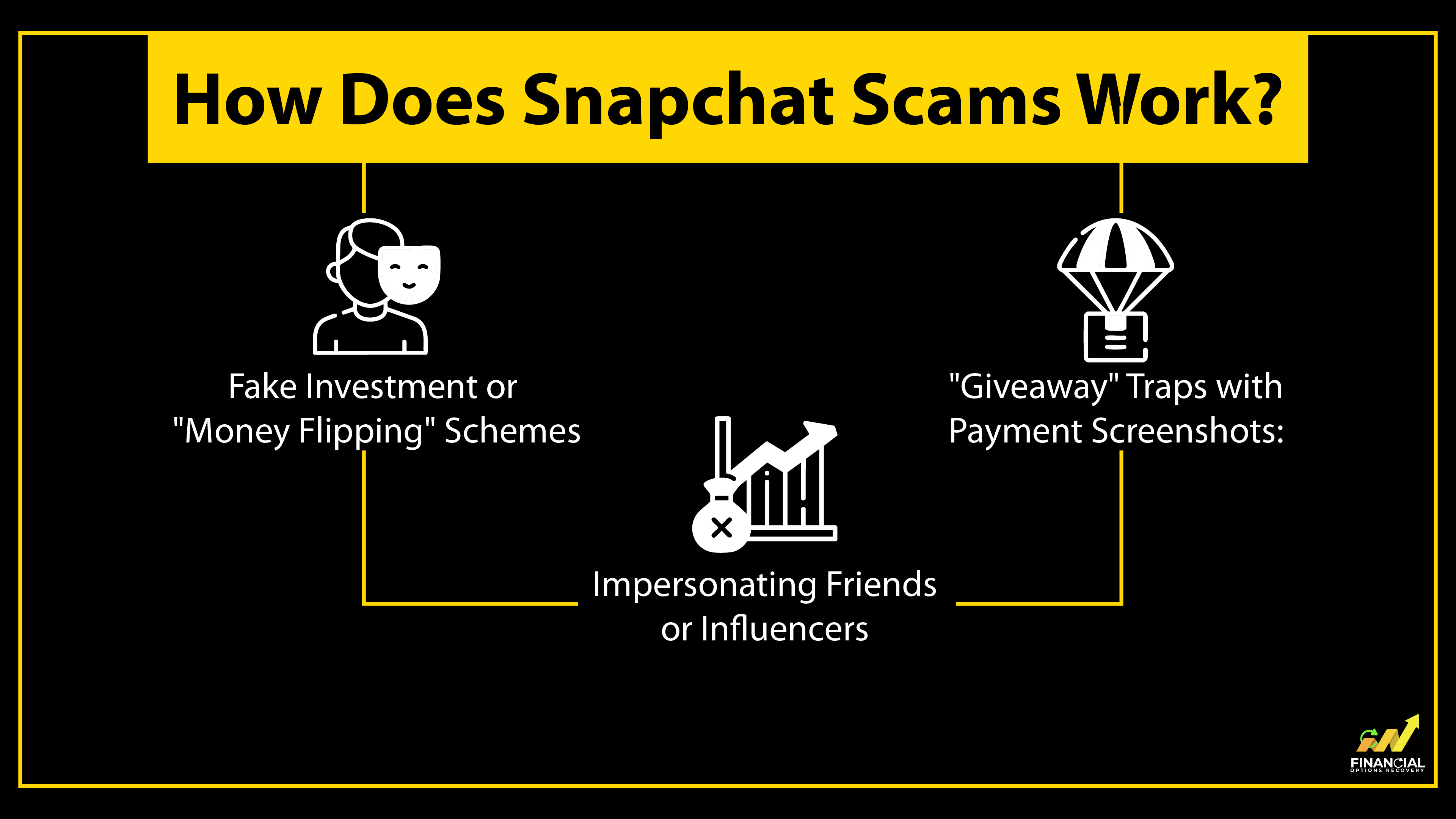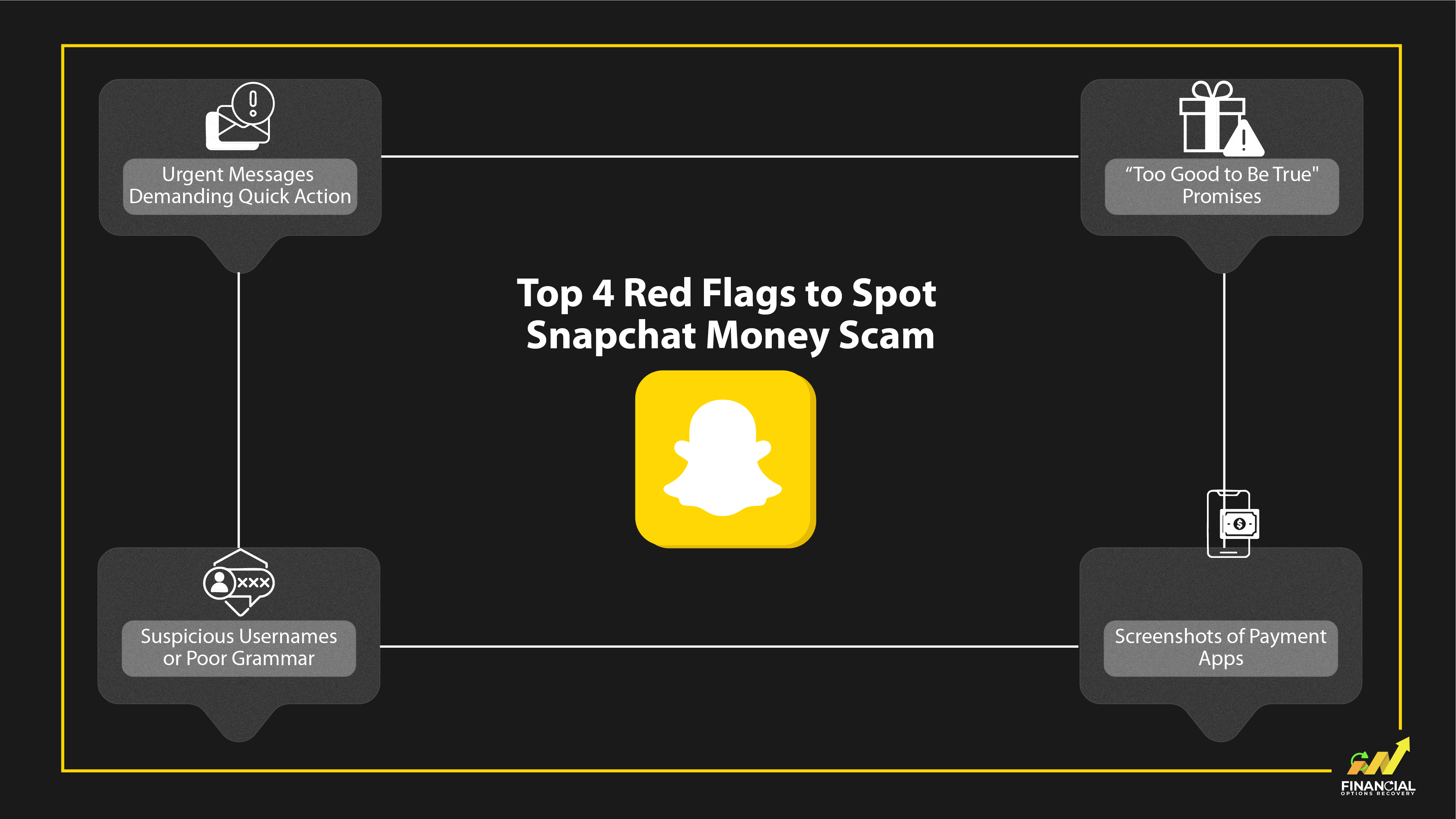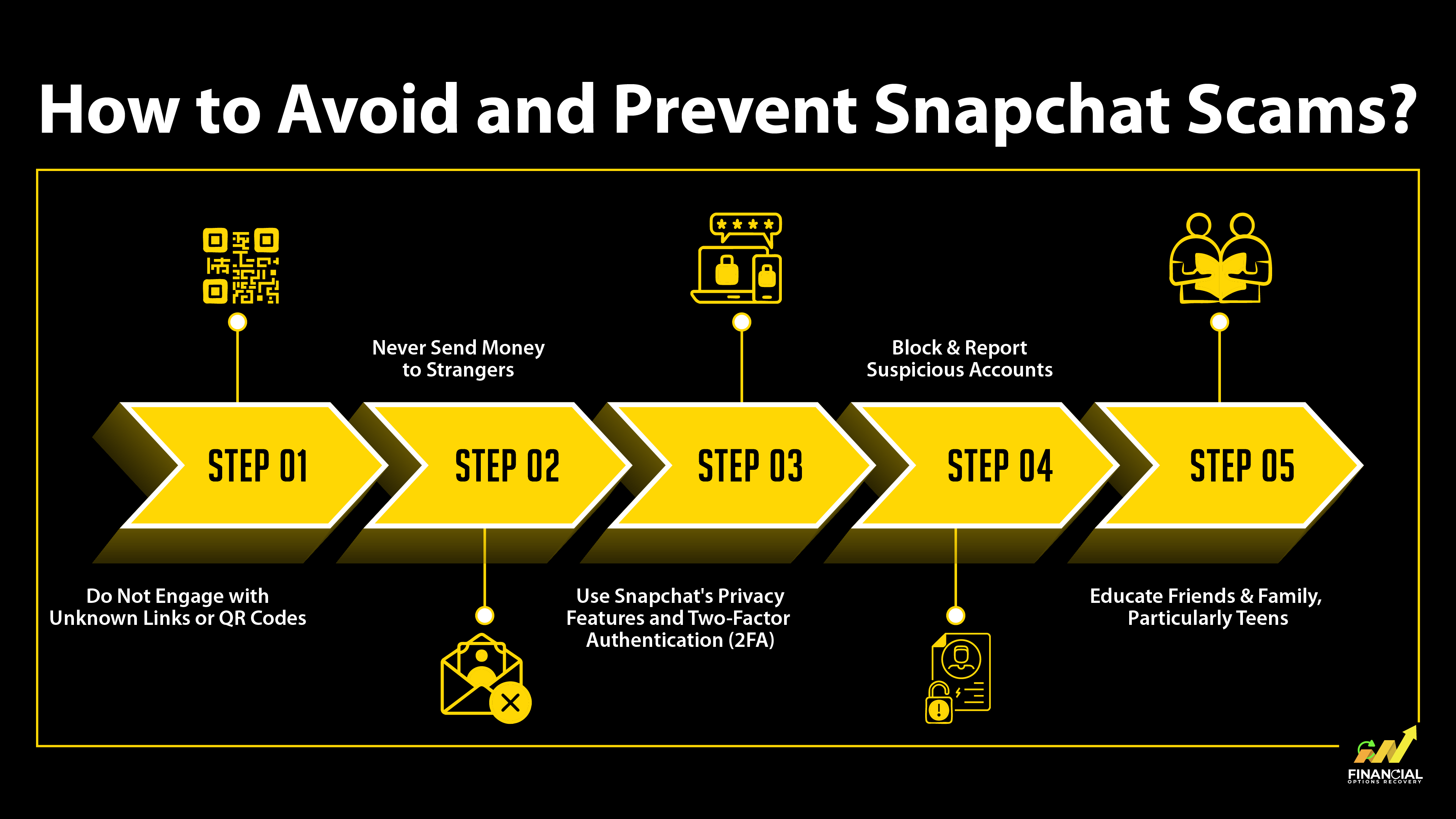
Table of Contents
Snapchat is supposed to be fun, right? It’s where you share random thoughts at 2 a.m., goofy selfies with filters, and those one-second snaps that only your real ones get.
But lately, something’s changed. Scammers are sliding into DMs like they belong there, friendly, chill, and convincing. They’re not flashing warning signs or shouting, “This is a scam!” Instead, they show up as a quick money flip, a sweet deal, or someone who just wants to “bless” you with free cash.
And just like that, what started as a casual chat can spiral into something serious.
But here’s the good news: once you know how these scams work, they’re easy to spot and even easier to avoid.
In this guide, you’ll learn:
Because Snapchat should be for streaks, not scams, and a little awareness can protect a lot more than just your Snap score.
Snapchat money scams are deceptive schemes where people are tricked into sending money or sensitive financial details over the Snapchat platform. The goal of these scams is to take your money, often by unlawful means and false promises.
Recently, there has been a significant increase in financial scams on Snapchat. Common examples include:
All these scams rely on exploiting trust and the desire for fast financial gain.
Snapchat scammers use clever methods to carry out their cons. Knowing how they work is your best defense.

Unfortunately, these strategies may ultimately cause more severe issues such as identity theft or bank fraud. These scammers may also attempt to acquire your personal banking information or persuade you to participate in illegal money laundering activities by cashing false checks.
Staying alert is your best protection against Snapchat scams. Here are some key warning signs that point to a scam:

Urgent Messages Demanding Quick Action: Scammers usually try to make you feel pressed. If the message wants you to make a quick choice or send money quickly, without leaving you any time to think or verify, that's a huge red flag.
For more detailed information on how these patterns appear, you can look up resources on social media investment frauds.
Securing your money on Snapchat means taking prudent steps and exercising a healthy amount of skepticism.

The following are practical safety measures:
Remember that legitimate Snapchat messages will never be sent to a domain that Snapchat does not own (e.g., company-named-at-snapchat.com, c.snap.company-named.com, snap.company-named.com) or any other third-party domain.
For more overall safety from investment scams on other websites, learn how to avoid Facebook investment scams and Instagram investment scams.
Even when you are taking all precautions, there are chances that you might fall victim to such advanced scams. In case you are affected, the sooner you act, the better for avoiding further complications and recovering your money in the process
In 2025, Snapchat scammers have continually enhanced their methods, making it more clever and difficult to discern. Awareness is perhaps your strongest defense against them. It really is important that we promote digital literacy among teenagers and young adults in order to build an even safer online community.
Keep yourself up to date with what is happening with scam trends. Always doubt too-good-to-be-true online offers, and never conduct any kind of money transaction without verifying the person's identity. By spreading this knowledge and fostering usage, this open conversation about online safety can lay the foundations for a more secure digital environment.
For more information regarding Snapchat's safety features and policies, visit the official Snapchat Safety Center.
If you’ve sent money to a Snapchat scammer, act quickly:
Sadly, most Snapchat money scams involve untraceable payment methods like crypto, gift cards, or cash apps, making recovery difficult, but fast action improves your chances.
Yes, Snapchat scams are illegal. Whether it's identity theft, impersonation, financial fraud, or blackmail, scammers on Snapchat are committing cybercrimes punishable under federal and state laws. These actions fall under digital fraud and online deception statutes, and victims have the right to report such crimes to relevant authorities and platforms.
To report Snapchat fraudsters:
Recovery depends on various factors, including the payment method used and how quickly you report the incident. While it's not guaranteed, reporting promptly to your bank/payment service and relevant authorities increases your chances. Cryptocurrency scams are generally harder to reverse
Snapchat is a hotspot for financial scams because of:
Scammers exploit the trust and privacy users feel on the app, making it easy to carry out romance scams, sextortion, and fake job offers or giveaways.